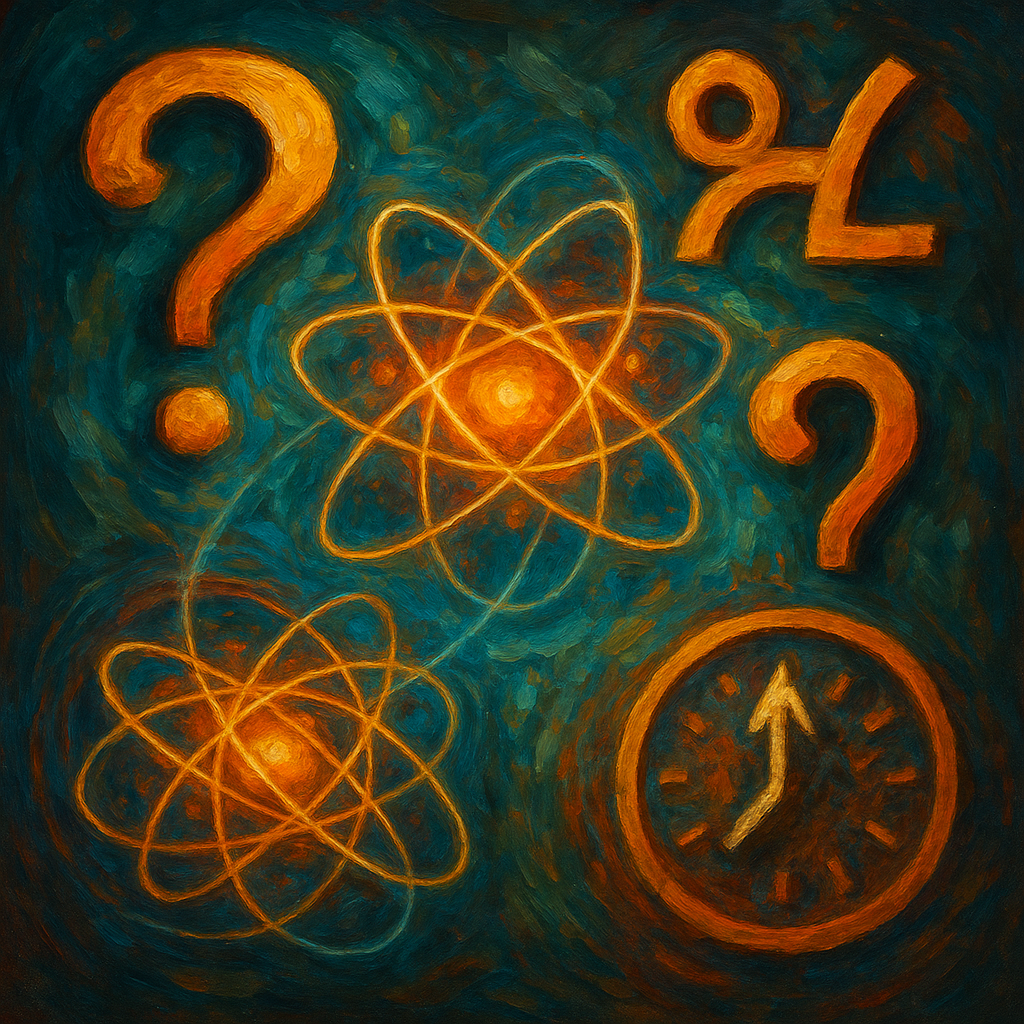Quantum mechanics is more than just a branch of physics; it represents a revolutionary approach to understanding reality. This ongoing evolution poses significant quantum mechanics challenges that compel us to rethink logic, perception, and even the nature of truth itself. In this article, we will explore how these challenges impact our understanding of both quantum mechanics and logic.
Understanding Quantum Mechanics and Its Philosophical Implications
Before delving into specific quantum mechanics challenges, it’s essential to grasp what quantum mechanics entails. At its core, quantum mechanics describes the behavior of particles at the atomic and subatomic levels. It introduces concepts such as superposition, entanglement, and quantum uncertainty which deviate from classical logic.
These principles radically alter our perception of reality. For instance, the idea of particles existing in multiple states at once challenges traditional notions of how something can be true or false. Such shifts invite us to rethink logic and its application in various contexts.
* Superposition: An electron can exist in multiple states until observed.
* Entanglement: Particles can be interconnected, so that the state of one immediately influences another, regardless of distance.
* Quantum Uncertainty: The more we know about a particle’s position, the less we can know about its momentum, and vice versa.
Together, these principles unravel established logic and open up a dialogue about alternative forms of understanding—an exploration fundamental to the field of quantum physics philosophy.
The Challenges to Traditional Logic
1. Quantum Mechanics Challenges Our Understanding of Causality
One of the most significant quantum mechanics challenges relates to causality. Classical logic dictates clear cause-and-effect relationships: if A happens, then B follows. However, in the quantum realm, events can occur without a discernible cause, leading to puzzling scenarios that defy this straightforward logic.
For instance, quantum entanglement suggests that particles can influence each other over vast distances without direct interaction. How do we reconcile this with our beliefs about local realism, where objects are only influenced by their immediate surroundings? With one of the fundamental aspects of logic being questioned, scholars in both physics and philosophy are compelled to rethink the underpinnings of causality.
2. The Challenge of Wave-Particle Duality
Another manifestation of quantum mechanics challenges is wave-particle duality. Light behaves both as a particle and a wave depending on how it is measured. This dual behavior challenges the static definitions we often use in logic.
* Implication for Logic: Traditional logic would have us categorize phenomena neatly. However, quantum mechanics illustrates that categories can overlap, indicating a more fluid understanding of logic is needed to account for these realities.
3. Quantum Mechanics and Uncertainty Principles
Quantum mechanics challenges the very idea of certainty. The uncertainty principle, articulated by Werner Heisenberg, states that certain pairs of properties can never be simultaneously known to arbitrary precision. This principle raises questions about knowledge and certainty within the framework of logic itself.
* What does this mean for reasoning? When scientists claim to know something, how definitive can that knowledge be? This uncertainty challenges traditional logical reasoning, as it implies that we cannot always trust our conclusions based on available evidence.
How Quantum Mechanics Alters Perception
An exploration of quantum mechanics challenges reveals quite a lot about how we perceive reality itself. The following are key insights:
* Reality is Not as It Seems: Quantum mechanics uncovers layers of complexity within fundamental processes, blurring the lines between perception and reality.
* The Role of Observation: The act of observing changes outcomes, suggesting that consciousness and perception are intricately tied to reality, a notion that harkens back to existential philosophy.
* Interconnectedness: The interconnectedness seen in quantum entanglement fosters a new understanding of relationships—one that challenges individualistic perspectives in classical logic.
Bridging Quantum Mechanics and Logic
To navigate these quantum mechanics challenges effectively, we must forge a bridge between quantum mechanics and logic. Here are some strategies:
1. Integrating Quantum Concepts into Logical Frameworks: Adopting flexible logical frameworks that incorporate principles of quantum mechanics could refine our understanding and interpretation of reality.
2. Philosophical Dialogues: Encouraging philosophical discussions around the implications of quantum mechanics may further illuminate areas where traditional logic fails.
3. Educational Initiatives: Introducing quantum mechanics for beginners can help laypersons grasp its challenges and engage with its philosophical implications.
The Future of Logic in Light of Quantum Mechanics Challenges
As we continue to explore quantum mechanics challenges, we may find ourselves moving toward a more nuanced understanding of logic. Accepting ambiguity and uncertainty could lead to a more advanced, comprehensive structure for reasoning that captures the complexity of our universe.
To summarize, quantum mechanics pushes the boundaries of logic, challenging us to rethink deep-rooted concepts such as causality, certainty, and reality itself. As this field evolves, both scientific and philosophical communities will benefit from ongoing dialogue that integrates these insights into our traditional frameworks of understanding.
Conclusion
The landscape of knowledge is continually recalibrating as we scrutinize the quantum mechanics challenges with fresh eyes. From uncertainty to wavering definitions of reality, our traditional logic faces significant transformations. Engage in discussions, embrace the uncertainties, and seek to understand how quantum concepts reshape our understanding. Explore, question, and ultimately expand your perspectives as we venture further into this enigmatic domain of inquiry.
